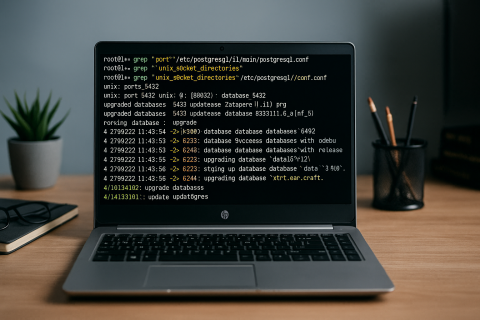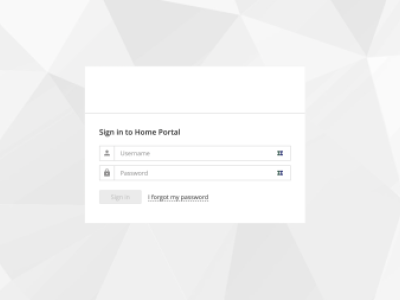Upgrading an XTRF instance—especially one that has aged alongside older OS and database stacks—is never a walk in the park. In this article, I’ll walk you through the real-world path I took, upgrading from Ubuntu 18.04 all the way to 22.04, aligning PostgreSQL to a supported version, and overcoming the nuanced issues involved in deploying XTRF on Jboss. Most importantly, I’ll highlight how AI—specifically ChatGPT—helped me tackle the hard problems, including log file analysis and patching .war deployments.
XTRF is a popular Translation management system we use at our Translation company in Tbilisi
Our system was running on Ubuntu 18.04 LTS with PostgreSQL 11, which shipped by default with that version. This setup had served us well in the past, but it was becoming increasingly clear that support was fading and incompatibilities with newer XTRF versions were stacking up. I had already encountered an unsuccessful upgrade attempt in the past, so this time I decided to take a much more structured and cautious approach.
Now, if you already have system all up and running, you could simply run:
sudo apt-get install xtrf10-full
Incremental Ubuntu Upgrades: 18.04 ➝ 20.04 ➝ 22.04
Rather than jumping directly to Ubuntu 22.04, I chose to perform the upgrade in stages:
- First from Ubuntu 18.04 to 20.04
- Then from Ubuntu 20.04 to 22.04
This stepwise upgrade reduced the risk of system-level incompatibilities and ensured all transitional versions of packages (like systemd, OpenJDK, and networking services) were properly adjusted.
The upgrade path:
sudo do-release-upgrade
After each upgrade, verify your PostgreSQL version:
psql --version
Ubuntu 22.04 ships with PostgreSQL 14
The PostgreSQL Puzzle
XTRF requires a newer version of PostgreSQL than version 11. I anticipated this and planned to upgrade to PostgreSQL 14, which ships natively with Ubuntu 22.04. Here, I faced issues with port mismatches (5433 vs. 5436) and authentication errors related to SCRAM secrets. But by carefully reviewing pg_hba.conf and adjusting user credentials, I was able to resolve connection problems.
Key steps included:
- Ensuring PostgreSQL was listening on the correct ports (
127.0.0.1:5436) - Creating proper users with SCRAM secrets
- Restarting services to apply changes
- Updating database URL references in XTRF’s deployment descriptors
Ensure correct port (5436) is used if migrating side-by-side:
Update the PostgreSQL config:
bash
CopyEdit
sudo nano /etc/postgresql/14/main/postgresql.conf # Change: # port = 5436
Update authentication method:
Ensure your pg_hba.conf matches your XTRF expectations:
sudo nano /etc/postgresql/14/main/pg_hba.conf
Reload PostgreSQL:
sudo systemctl restart postgresql@14-main
5. Create the user and database (if needed):
sudo -u postgres psql # Inside psql shell: CREATE USER xtrf WITH PASSWORD 'yourpassword'; CREATE DATABASE xtrf OWNER xtrf; \q
📦 Where to Find XTRF Configuration Files
Knowing the XTRF configuration structure saved hours of guessing. Key files include:
1. Jboss/XTRF Deployment Directory:
/usr/local/jboss-xtrf/standalone/deployments/xtrf.ear/
This contains all XTRF modules as .war sub-units. You can modify or patch these individually.
2. Data source configuration (PostgreSQL JDBC):
/usr/local/jboss-xtrf/standalone/configuration/standalone.xml
Look for <datasource> definitions referencing the JDBC URL:
<connection-url>jdbc:postgresql://127.0.0.1:5436/xtrf</connection-url>
3. JVM Options / Startup Config:
/usr/local/jboss-xtrf/bin/standalone.conf
Use this to set memory limits, GC options, or debug flags.
How ChatGPT Saved the Day
The real MVP during this upgrade was ChatGPT, which helped me:
- Analyze Jboss logs showing
BeanCreationException,UnsatisfiedDependencyException, andDataSourceCreationException - Interpret PostgreSQL
FATAL: SCRAM authenticationfailures - Identify missing
.warmodules insidextrf.ear - Suggest edits to
pg_hba.confand JDBC config - Guide through safe systemctl restarts and daemon troubleshooting
ChatGPT even pinpointed which .war files were failing due to unmet dependencies and why the Spring context wasn’t initializing.
Lessons & Best Practices
- Upgrade incrementally: Don't skip Ubuntu versions.
- Use fresh PostgreSQL: Version 11 is too old for modern XTRF deployments.
- Backup WARs & DB: Always snapshot before touching app or schema.
- Read logs: And use ChatGPT to make sense of them!
- Patch early: Customized
.warfiles will likely need manual attention.
Conclusion
This upgrade—from Ubuntu 18.04 and PostgreSQL 11 to a modern stack with Ubuntu 22.04 and PostgreSQL 14—wasn’t easy. But it was absolutely doable with a structured approach, solid logging, and the right tooling.
Thanks to ChatGPT, I turned cryptic logs and failed services into solvable tasks—and brought XTRF back online stronger than before.



